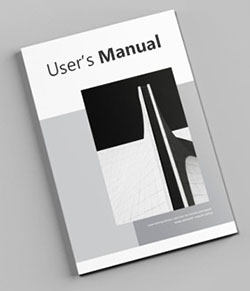Komunikasi Interpersonal Mediator Dalam Proses Mediasi Perkara Perceraian di Pengadilan Agama Tulungagung
Abstract
Abstrak:
Penelitian ini membahahas dua persoalan pokok yaitu: 1) Bagaimana komunikasi interpersonal mediator dengan pihak yang berperkara dalam proses perceraian di Pengadilan Agama Tulungagung?, 2) Faktor apa sajakah yang mendukung dan menghambat komunikasi interpersonal mediator Pengadilan Agama Tulungagung dalam proses mediasi perkara perceraian?. Metode yang digunakan peneliti untuk menjawab permasalahan tersebut adalah metode kualitatif deskriptif melalui studi kasus perceraian yang terjadi di Pengadilan Agama Negeri Tulungagung. Adapun untuk memperoleh hasil data secara rinci, penelitian ini menggunakan metode wawancara, observasi dan dokumentasi. Hasil penelitian menunjukkan bahwa 1) Mediator mengaplikasikan 5 prinsip hukum komunikasiefektif dalam melaksanakan mediasi dengan pihak yang berperkara pada kasus perceraian di pengadilan Agama Tulungagung yaitu: empati, menghormati, dapat didengarkan atau dimengerti, kejelasan pesan, dan sikap rendah hati yang ditunjukkan melalui sikap dan tutur mediator, 2) Keberhasilan mediator dalam komunikasi interpersonal untuk menekan angka perceraian di Pengadilan Agama Tulungagung disebabkan oleh sikap tegas dan netral mediator dalam mengarahkan pihak yang berperkara serta sikap pihak berperkara yang terbuka. Namun di sisi lain, komunikasi interpersonal terkadang menunjukkan keberhasilan yang rendah karena permasalahan tawar menawar yang rumit terkait harta gono gini, sikap kukuh para pihak yang berperkara untuk bercerai, serta keengganan mengikuti proses mediasi sebagai jalan untuk mempercepat proses perceraian
Abstract:
This study addresses two main issues, namely: 1) How is mediator interpersonal communication with litigants in the divorce process in the Tulungagung Religious Court?. To answer this problem, researchers used descriptive qualitative methods oriented to divorce case studies that took place in the Tulungagung District Religious Court. In order to obtain detailed data results, researchers used three methods of data collection, namely interviews, observation and documentation as non-human data sources. The results showed that 1) Mediators applied 5 principles of interpersonal communication in conducting mediation with litigants in divorce cases at the Tulungagung Religion court, namely: empathy, respect, can be heard or understood, clarity of messages, and a humble attitude that was shown through attitude and speech mediator, 2) The success of the mediator in interpersonal communication to reduce divorce rates in the Tulungagung Religious Court is caused by the firm and neutral attitude of the mediator in directing the litigant party and the open attitude of the litigant party.However, on the other hand, interpersonal communication sometimes shows low success because of the problem of complicated bargaining related to property, the firm attitude of the parties to divorce, and reluctance to follow the mediation process as a way to speed up the divorce process.Keywords
Full Text:
PDFDOI: https://doi.org/10.31764/jail.v2i2.1259
Refbacks
Copyright (c) 2019 Al-I'lam: Jurnal Komunikasi dan Penyiaran Islam

This work is licensed under a Creative Commons Attribution-ShareAlike 4.0 International License.
Al-I’lam: Jurnal Komunikasi dan Penyiaran Islam
Fakultas Agama Islam Universitas Muhammadiyah Mataram.
Alamat Redaksi:
Jln. KH. Ahmad Dahlan No. 1 Pagesangan – Mataram
Telpon 085946008096 | email: [email protected]
INDEXED BY:

.png)
2.png)


























